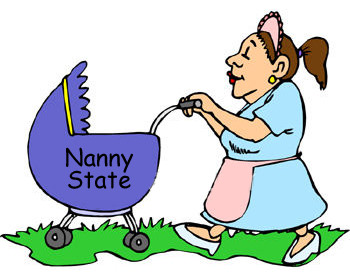 The CTIA – Wireless Association filed suit in federal court last week to block a San Francisco law that requires cell phone retailers to distribute warnings to consumers regarding the alleged connection between cell phone use and cancer. While of course the FCC has approved cell phone use and such warnings are unlikely to deter anyone from buying the latest iPhone or Android phone, San Francisco has a knack for nanny-state decrees that infringe on business liberties and free speech. This is the latest example of an unconstitutional law that tries to protect people from something that doesn’t exist.
The CTIA – Wireless Association filed suit in federal court last week to block a San Francisco law that requires cell phone retailers to distribute warnings to consumers regarding the alleged connection between cell phone use and cancer. While of course the FCC has approved cell phone use and such warnings are unlikely to deter anyone from buying the latest iPhone or Android phone, San Francisco has a knack for nanny-state decrees that infringe on business liberties and free speech. This is the latest example of an unconstitutional law that tries to protect people from something that doesn’t exist.
WLF’s Senior Litigation Counsel Cory Andrews was interviewed by The Recorder in California regarding the issue of laws compelling businesses to provide information. The city’s new law is the first in the country to require retailers to post or distribute warnings regarding RF energy and how to avoid exposure. As Andrews noted, the free speech implications of forced speech by government on private enterprise apply to all Americans – being forced to say something against your will is usually unconstitutional.
The association challenged the law on free speech grounds as well as preemption by federal law through the FCC. Just where we are willing to draw a line between informing consumers and infringing on free speech rights of businesses is tough, but the Court has provided guidance in the past. There is no indication that retailers are misleading consumers about cell phones, and given the FCC’s own explicit endorsement of the low RF limits they have imposed, it is difficult to argue that consumers need warnings regarding something that is not misleading to them. Furthermore, governments such as San Francisco can always distribute warnings or notices or public advertisements on their own dollar and time without intruding on the marketplace. The problem arises when government compels speech by a business within their own shop.
San Francisco has considered or passed some interesting regulations or laws in the past, such as banning goldfish, household pets, disposable diapers, plastic bags, soft drinks in public vending machines, and toys in happy meals. That they would have a new law challenged as a violation of someone’s constitutional rights is no surprise. Perhaps nothing is surprising anymore when it comes to nanny-state government regulations intruding on the free market and, well, freedom itself.
